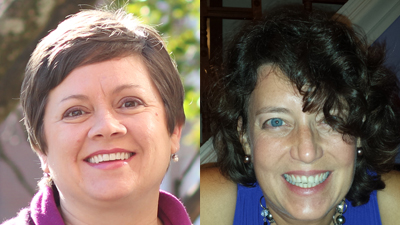New research will unearth behind-the-scenes stories from disaster communicators
July 13, 2016

By J. Suzanne Horsley, the University of Alabama, and Jill M. Bode, Designed Write Public Relations
Imagine you are a new communications professional who is suddenly tasked with delivering vital public information after a tornado has destroyed your town.
You likely have had academic or on-the-job training in crisis and disaster communication, and know the protocols needed to get the messages to your intended audience. But, unless you have experience living off the grid in a remote wilderness, you may not know how to do your job effectively when there is no electricity, internet access or cellular service. Add the rumors that are quickly outpacing the flow of official messaging, and you have a veritable tsunami of challenges to overcome.
While there are numerous books, journal articles and case studies that outline what you should do in this situation, there are few personal accounts that detail how a communicator actually addressed obstacles and barriers in an active disaster setting.
With support from the Page Center’s 2016 Page & Johnson Legacy Scholar Grant, we will collect the stories of experienced disaster communicators, both paid and volunteer, to gain insight into how they accomplished their mission when faced with a variety of challenges that could create ethical issues when dealing with loss of life, property and livelihoods.
It is imperative that public information officers (PIOs) and other communicators provide accurate, timely and reliable information to all stakeholders so that the public can make informed decisions before, during and after a disaster event. They often must make ethical decisions under pressures of time, of threats to public safety and of resource shortages—all while experiencing personal hardship conditions such as dangerous weather, smoke from wildfires or emotional distress from witnessing loss and devastation.
It is also common for communicators to find themselves suddenly working with staff from other organizations who may have different priorities during a disaster response. There may be times when communicators find that compassion and their own organizational policies are in conflict. By producing revealing narratives of communicators’ personal experiences during disaster responses, this project will demonstrate to others how ethical communication practices emerge or are impeded under difficult working conditions.
In the coming months, Page Center funds will support our interviews with communicators from emergency management agencies, nonprofits, faith-based groups and other organizations that respond to disasters. We look forward to learning more about the behind-the-scenes work of disaster communicators and sharing compelling stories to help other professionals who may one day find themselves in the middle of an unexpected disaster.
This project was among six research studies funded by the 2016 Page & Johnson Legacy Scholar Grants. For more information about this work, please email J. Suzanne Horsley at prof.horsley@yahoo.com.

